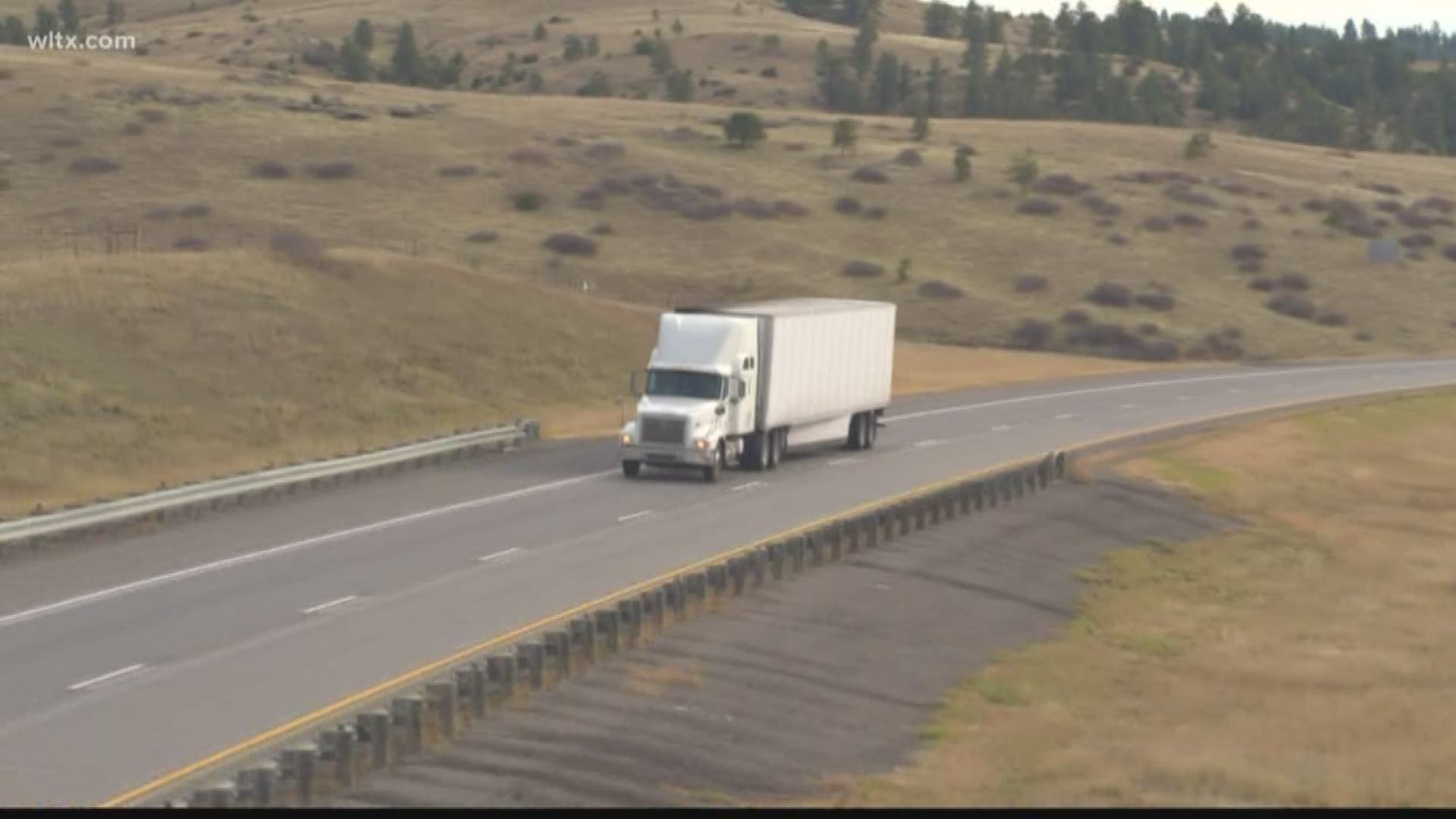COLUMBIA, S.C. — Truck drivers in the Midlands are feeling the impacts of the coronavirus after workloads have increased drastically for shipments and deliveries for stores.
Kenji Long, the Operations Manager at Howell's Motor Freight, Inc. in Columbia, says they've been busy since the coronavirus pandemic started.
"We are a local as well as a East Coast transportation carrier," said Long. "We cover everything from food products from dressings to meat products, all the way back into pet food."
The company also handles dry and refrigerated loads. They'll travel from South Carolina, North Carolina, Georgia, Pennsylvania, and Maryland.
In Columbia, they have ten truck drivers. On the East Coast, they have about 250.
Since the concern about the coronavirus started, it's increased their workload by a substantial amount.
"The greatest influence it's had on us, it's changed everything from our attire that we're wearing on the daily. Our drivers are equipped so they're wearing the gloves that are required. We've lessened our contact with our receiving clerks. We don't actually allow anyone to come into our facility, nor do we go into anyone's facility to deliver paperwork or the product that we deliver."
Long says some of their customers are not requiring for them to have delivery receipts. To better protect customers and workers, they're delivering paperwork in plastic sleeves.
While they've seen an increase with orders in the supply industry with places like Lowes, food has been in the highest demand.
"The food, that industry that we cover, we've seen a huge increase in that," said Long. "It's double."
"We are doing more travel, more miles traveled, more fuel, all of that has increased because of this pandemic," explained Long.
With the company traveling as much as they are, they're expecting costs to get higher for them. For example, as they put more wear and tear on the trucks, they'll have to pay more for maintenance.
Truck drivers have had issues getting food on the road with rest areas and restaurants shutting down. In the meantime, they've only gone through drive-thru's or have brought their own food while on the road.
Long says people can help out the truck industry by being more mindful of how much they buy and how much they actually need.
"If people would monitor their spending to what they need rather than stockpiling, it would lessen or make it a lot easier for people to get what's required and what they need."
"I just hope that people don't panic and continue to do that to the point where it keeps more pressure on us to where it does lessen the amount of time that drivers have home and to where we have more contact. It can all work well if we work together."

